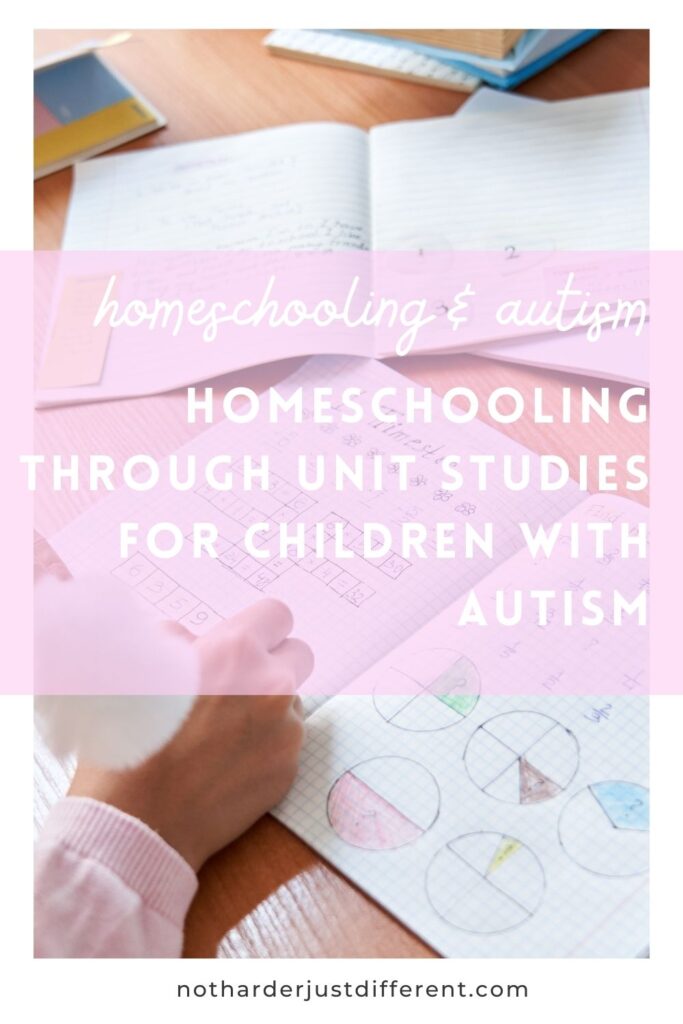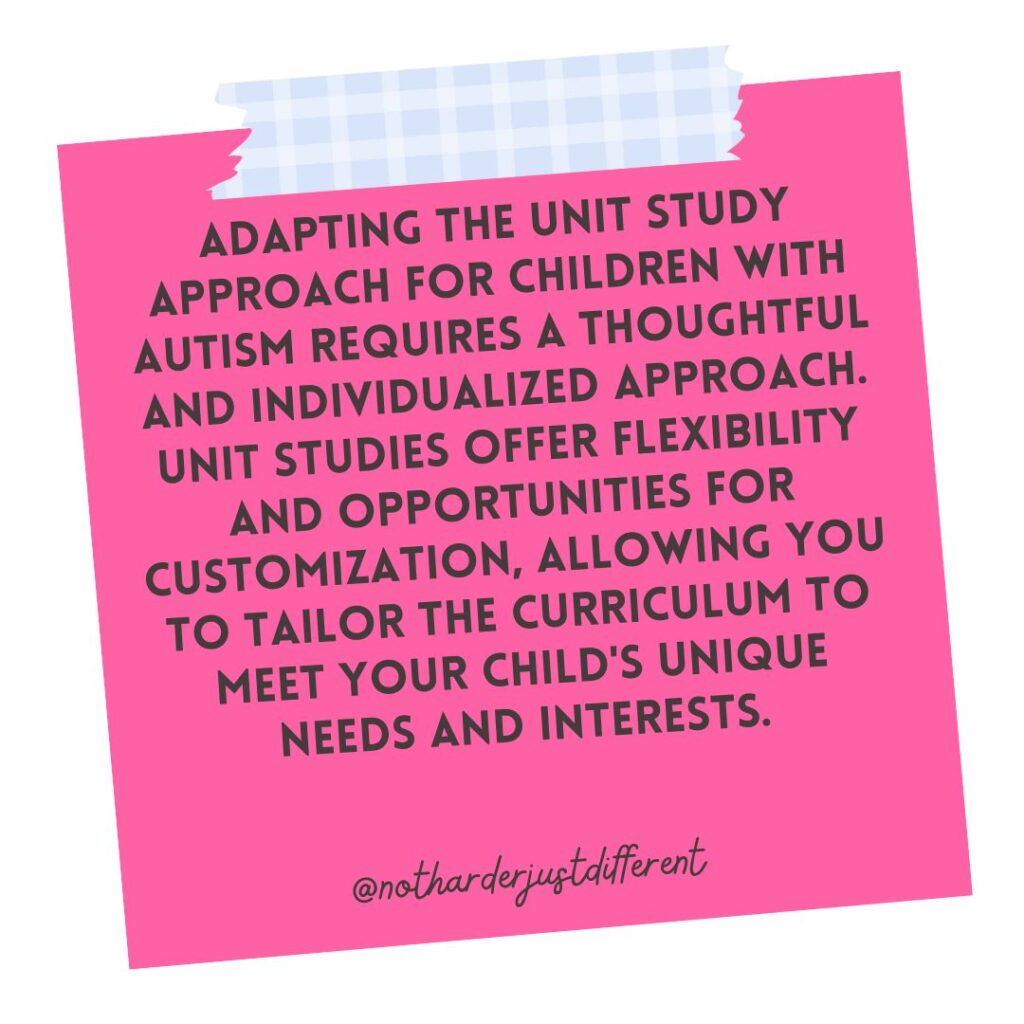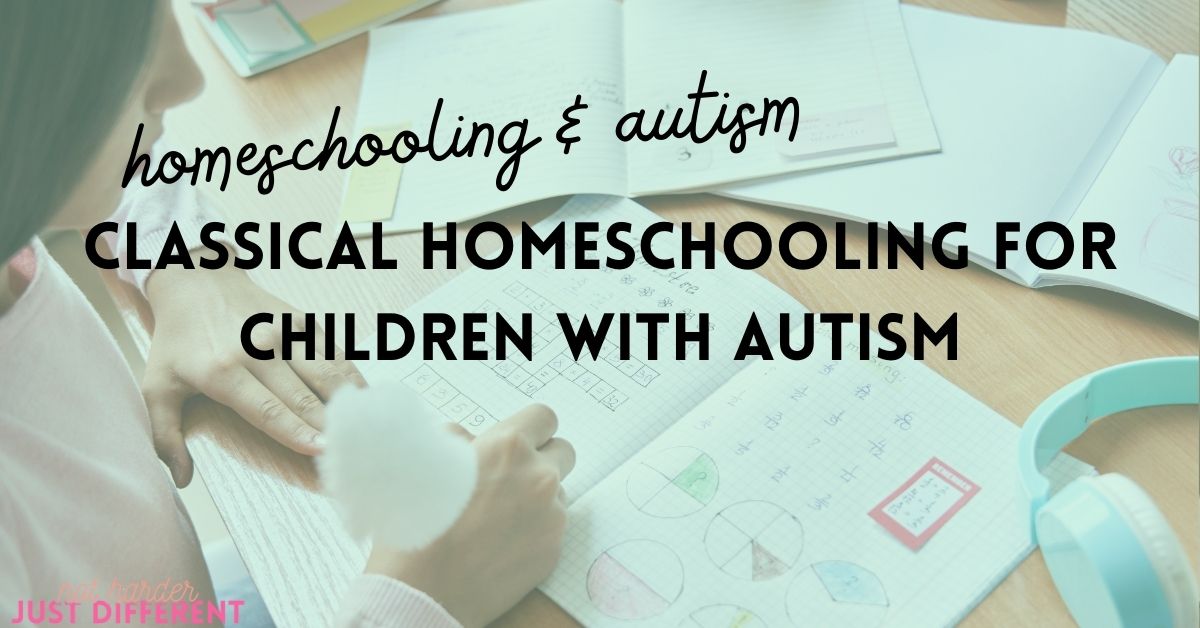Disclaimer: As a future Licensed Clinical Social Worker (LCSW) currently pursuing my master’s degree, I am passionate about sharing insights and information related to parenting, autism and homeschooling based on my personal experiences and research. However, the content shared on this blog is not intended to substitute professional advice, diagnosis, or treatment. Parenting is a deeply personal journey, and while I strive to provide valuable insights, every family and situation is unique. Readers are encouraged to consult with qualified professionals for personalized guidance tailored to their specific needs and circumstances.
Imagine a homeschooling environment where learning comes alive through themed units that integrate multiple subjects and spark curiosity and excitement. That’s the beauty of homeschooling through unit studies—a flexible and immersive method that allows children to dive deep into topics of interest while developing a broad range of skills and knowledge.
We love unit studies in our homeschool. We don’t follow one method for the entire year, but there are seasons when our homeschool is only unit studies (we are starting one tomorrow, actually!). I love that they can be a deep dive into something that Bug is interested in. Because she is already interested in the topic, it is a lot easier to help her stay engaged. Looking at every subject through one lens also helps keep her attention and we always have a lot of fun. Let’s chat more about unit studies!

Homeschooling Through Unit Studies for Children with Autism
Understanding Unit Studies Homeschooling
Unit studies homeschooling revolves around the exploration of themes or topics across various subjects, including language arts, science, social studies, and more. Each unit provides a rich and immersive learning experience that engages children’s interests and fosters a love for learning.
In a unit studies homeschool, children have the opportunity to explore topics that captivate their imagination and curiosity. Whether it’s dinosaurs, space exploration, or ancient civilizations, unit studies allow children to delve deep into subjects of interest while making meaningful connections across different disciplines.
Why Unit Studies Work Well for Children with Autism
Unit studies offer a multitude of benefits that align particularly well with the needs and learning styles of children with autism:
- Visual and Contextual Learning: Unit studies provide a cohesive framework that allows children to grasp concepts within a broader context. For children with autism, who often excel in visual and contextual learning, unit studies offer a holistic approach that promotes understanding and retention of information.
- Flexibility and Personalization: Unit studies offer flexibility, allowing parents to tailor the curriculum to their child’s interests, strengths, and learning pace. This flexibility is especially beneficial for children with autism, who may have unique interests and preferences that can be incorporated into the curriculum, fostering engagement and motivation.
- Multi-Sensory Exploration: Unit studies encourage multi-sensory exploration through hands-on activities, experiential learning, and real-world connections. For children with autism, who often benefit from sensory-rich experiences, unit studies provide opportunities to engage with learning in meaningful and concrete ways, promoting active participation and comprehension.
- Integration of Skills and Subjects: Unit studies integrate multiple subjects and skills within a thematic framework, allowing children to make connections across different areas of learning. This integrated approach helps children with autism see the relevance and interconnectedness of what they are learning, fostering a deeper understanding of concepts and promoting transferable skills.
- Routine and Predictability: Unit studies provide a structured and predictable learning environment, which can be particularly beneficial for children with autism who thrive on routine and predictability. The consistent format of unit studies, with its clear objectives and progression of activities, helps children feel secure and confident in their learning journey.
- Opportunities for Social Learning: Unit studies offer opportunities for social interaction and collaboration, which are essential skills for children with autism to develop. Through field trips, museum trips and other community-based learning opportunities, children with autism can practice social skills in a supportive and inclusive environment, fostering friendships and peer connections.

Tailoring Unit Studies for Autism
Adapting the unit study approach for children with autism requires a thoughtful and individualized approach. Unit studies offer flexibility and opportunities for customization, allowing you to tailor the curriculum to meet your child’s unique needs and interests.
Create a supportive learning environment that accommodates your child’s sensory needs and promotes a sense of security and predictability. Provide visual supports, schedules, and routines to help your child navigate their learning journey with confidence and ease.
Practical Tips and Strategies
Let’s dive into the practical side of unit studies homeschooling! Start by selecting engaging and age-appropriate topics that align with your child’s interests and passions. Consider incorporating multisensory activities, hands-on projects, and real-world experiences to bring the unit to life and make learning memorable and meaningful.
Integrate language arts, math, science, and social studies into your unit studies curriculum, allowing children to make connections and see the relevance of what they are learning. Encourage active exploration, inquiry, and discovery, and provide opportunities for children to share their knowledge and ideas through writing, artwork, and presentations.
Embracing the Unit Studies Philosophy
At the heart of unit studies homeschooling lies a commitment to fostering a love for learning and empowering children to become curious, independent thinkers and lifelong learners. Unit studies encourage children to take ownership of their education and pursue their interests with passion and enthusiasm.
Embrace the unit studies philosophy as a pathway to discovery and exploration, allowing children to follow their curiosity and delve deep into topics that ignite their imagination. Celebrate the joy of learning together as you embark on exciting adventures and uncover new insights and discoveries along the way.
By embracing the unit studies approach, it’s easy to create opportunities for children to engage with the world around them, make connections, and develop essential skills and knowledge that will serve them well in life. If you think unit studies might work for your family, try it out! You never know what you’ll learn together.

